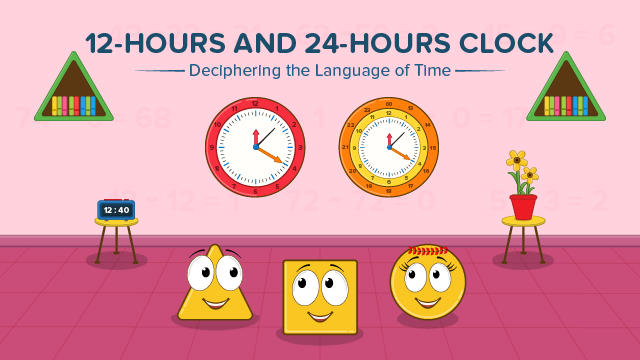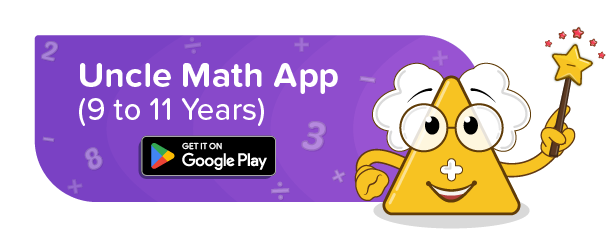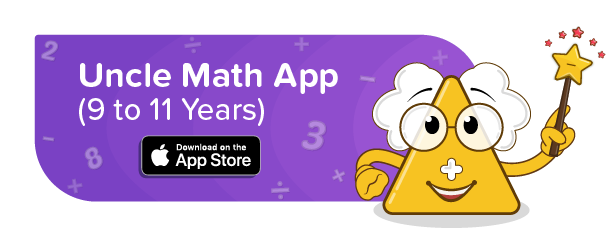12 Hour And 24 Hour Clock

There are two types of clocks:
- 12-hour clock
- 24-hour clock 12-hour clock:
- The 12-hour clock uses digits from 1 to 12 to indicate time.
- In a 12 hour clock morning to noon period is indicated using numbers 1 to 12 followed by a.m. and the afternoon to night time is indicated using numbers 1 to 12 followed by p.m. 24-hour clock:
- A 24-hour clock uses numbers from 1 to 24 to indicate time. It does not use a.m or p.m.
- In a 24 hour clock, the morning to afternoon period is indicated using numbers from 1 to 12 digits, whereas the afternoon to night period is indicated using numbers from 13 to 24.
Conversion of 12 hours clocks to 24-hour clocks:
Starting from the first hour of the day (12:00 AM or midnight to 12:59 AM), subtract 12 hours:
- 12:00 AM = 0:00
- 12:15 AM = 0:15 From 1:00 AM to 12:59 PM, the hours and minutes remain the same:
- 9:00 AM = 9:00
- 12:59 PM = 12:59 For times between 1:00 PM to 11:59 PM, add 12 hours:
- 3:17 PM = 15:17
- 11:59 PM = 23:59. Conversion of 24 hours clocks to 12-hour clocks: Starting from the first hour of the day (0:00 / midnight to 0:59), add 12 hours and AM to the time:
- 0:30 = 12:30 AM
- 0:55 = 12:55 AM
From 1:00 to 11:59, simply add AM to the time:
- 2:25 = 2:25 AM
- 9:30 = 9:30 AM
For times between 13:00 to 23:59, subtract 12 hours and add PM to the time:
- 16:55 = 4:55 PM
- 21:45 = 9:45 PM Different ways of teaching:
Teaching through stories:
1 The Time Bomb Mystery
Teaching through activities:
– Decode the time:
Students will have to decode the time from a timetable and help the soldier to get to his routine on time.




